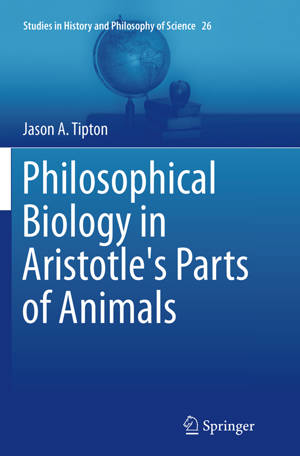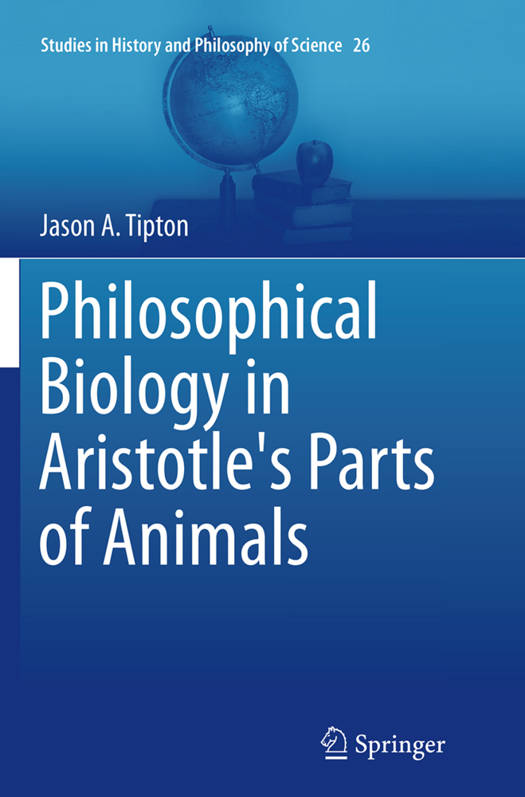
Door een staking bij bpost kan je online bestelling op dit moment iets langer onderweg zijn dan voorzien. Dringend iets nodig? Onze winkels ontvangen jou met open armen!
- Afhalen na 1 uur in een winkel met voorraad
- Gratis thuislevering in België vanaf € 30
- Ruim aanbod met 7 miljoen producten
Door een staking bij bpost kan je online bestelling op dit moment iets langer onderweg zijn dan voorzien. Dringend iets nodig? Onze winkels ontvangen jou met open armen!
- Afhalen na 1 uur in een winkel met voorraad
- Gratis thuislevering in België vanaf € 30
- Ruim aanbod met 7 miljoen producten
Zoeken
Philosophical Biology in Aristotle's Parts of Animals
Jason a Tipton
€ 116,45
+ 232 punten
Uitvoering
Omschrijving
This book provides a detailed analysis of Aristotle's Parts of Animals. It presents the wealth of information provided in the biological works of Aristotle and revisits the detailed natural history observations that inform, and in many ways penetrate, the philosophical argument. It raises the question of how easy it is to clearly distinguish between what some might describe as "merely" biological and the philosophical. It explores the notion and consequences of describing the activity in which Aristotle is engaged as philosophical biology. The book examines such questions as: do readers of Aristotle have in mind organisms like Ascidians or Holothurians when trying to understand Aristotle's argument regarding plant-like animals? Do they need the phenomena in front of them to understand the terms of the philosophical argument in a richer way? The discussion of plant-like animals is important in Aristotle because of the question about the continuum between plant and animal life. Where does Aristotle draw the line? Plant-like animals bring this question into focus and demonstrate the indeterminacy of any potential solution to the division. This analysis of Parts of Animals shows that the study of the nature of the organic world was Aristotle's way into such ontological problems as the relationship between matter and form, or form and function, or the heterogeneity of the many different kinds of being.
Specificaties
Betrokkenen
- Auteur(s):
- Uitgeverij:
Inhoud
- Aantal bladzijden:
- 207
- Taal:
- Engels
- Reeks:
- Reeksnummer:
- nr. 26
Eigenschappen
- Productcode (EAN):
- 9783319376523
- Verschijningsdatum:
- 27/08/2016
- Uitvoering:
- Paperback
- Formaat:
- Trade paperback (VS)
- Afmetingen:
- 156 mm x 234 mm
- Gewicht:
- 312 g

Alleen bij Standaard Boekhandel
+ 232 punten op je klantenkaart van Standaard Boekhandel
Beoordelingen
We publiceren alleen reviews die voldoen aan de voorwaarden voor reviews. Bekijk onze voorwaarden voor reviews.











